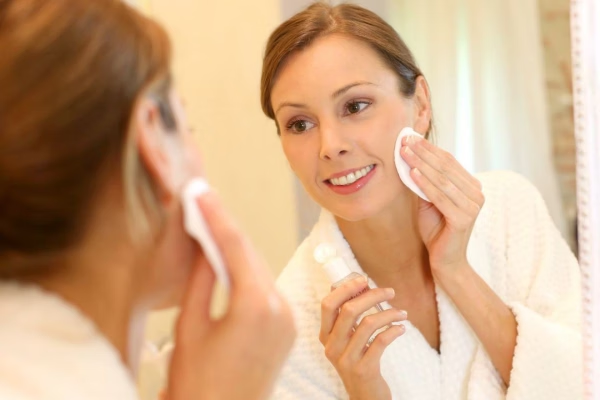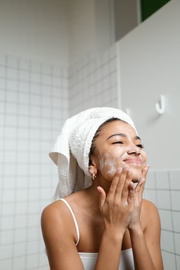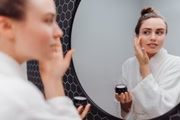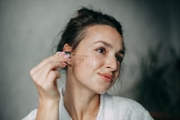Homemade Recipes: Dermatologist Reveals What Works and What Doesn't

Despite being widely promoted online, with influencers promising a wide variety of miraculous results, homemade masks and mixtures don't always benefit your skin . Many of them can even be harmful to your face .
Dermatologist Marina Cintra reveals that she has seen several patients with skin complications after applying homemade remedies. Among them, the most common were allergies, eczema, and skin blemishes. "But there have been more serious cases, such as infections and burns, some even irreversible," she reveals.
The doctor explains that, even though the masks are made with substances also used by the industry and that have proven benefits, she does not usually recommend the use of homemade recipes.
She emphasizes that there are numerous factors involved, and that ingredients mixed at home can be very abrasive to the skin. "We have to consider the skin's ideal pH, the concentration of active ingredients, sun toxicity, and storage issues and proper hygiene of the products," she emphasizes. Marina comments that this is precisely the goal of the cosmetics industry, which "is there to deliver tested and approved products, ensuring greater safety."
Having made the necessary considerations to ensure skin health, Marina reveals that some everyday active ingredients can help during dermatological treatment. Among them:
- Cold chamomile tea: usually used to wash the face, in case of sensitive skin.
- Cotton soaked in vinegar: can help treat nail fungus.
- Cornstarch in bath water: can relieve eczema and dermatitis on the skin.
- Coconut oil on the hair shaft: it is useful for increasing shine in some hair types and reducing frizz, as it creates a protective barrier and prevents protein loss.
- Rosehip oil: It has been commonly used with good properties for the treatment of stretch marks.
- Aloe vera: has soothing benefits, but you need to be careful with aloin, a substance found in aloe vera that can irritate the skin.






Skin care
High Astral/Reproduction
Cleansing your skin is essential to remove impurities, excess oil and makeup.
Pexels
Taking care of your skin daily ensures good texture and prevents aging.
Getty Images/Halfpoint Images
Several active ingredients can be used in skincare
Aleksandra Shamomina/EyeEm/Getty Images"I don't see any benefits in homemade masks, but I recommend a practical and cost-effective skincare product," explains Marina.
In the morning
- Start by cleansing your face with a suitable soap. If you have dry, sensitive, or mature skin, I prefer gentle soaps containing glycerin. If you have oily or acne-prone skin, products with glycolic acid are a good option.
- After cleansing, use a good facial moisturizer. Active ingredients with hyaluronic acid and vitamin C are recommended during the day and have plumping and antioxidant properties. For oily skin, opt for products with a dry, oil-free feel.
- Next, always apply a good sunscreen with an SPF of at least 30, a pleasant feel, and good quality. I usually recommend foundation sunscreen for patients with facial blemishes, such as melasma, as this product provides extra protection.
- Reapplying sunscreen throughout the day is essential, and moisturizing your face and body right after showering is very beneficial, as your skin absorbs the active ingredients better.
At night
- First comes cleansing. I recommend using micellar water to remove residue and products used throughout the day. Then, moisturize.
- I recommend using products with greater action, whether rejuvenating, brightening, or antioxidant. It depends on each case. Retinoids and their derivatives are usually preferred, but there are good options such as glycolic, kojic, and tranexamic acid. Niacinamide is also often part of this routine.
- I recommend caution, as each treatment is based on the individual characteristics of each patient. Always consult a dermatologist who is a member of the Brazilian Society of Dermatology (SBD).
metropoles





